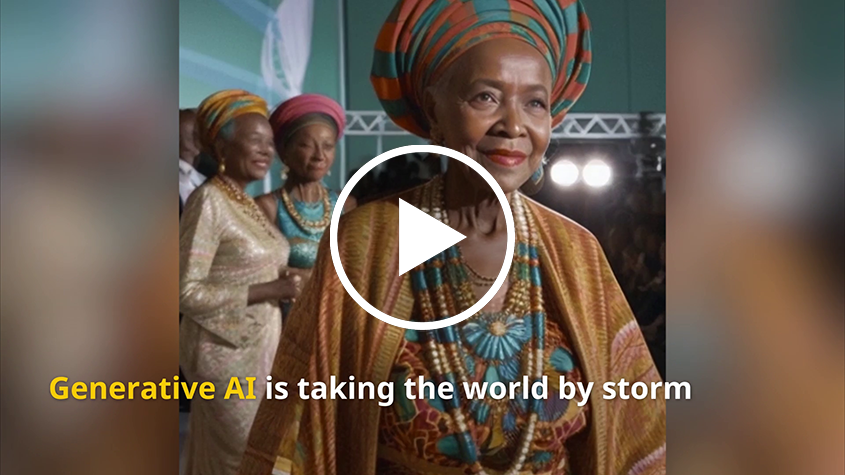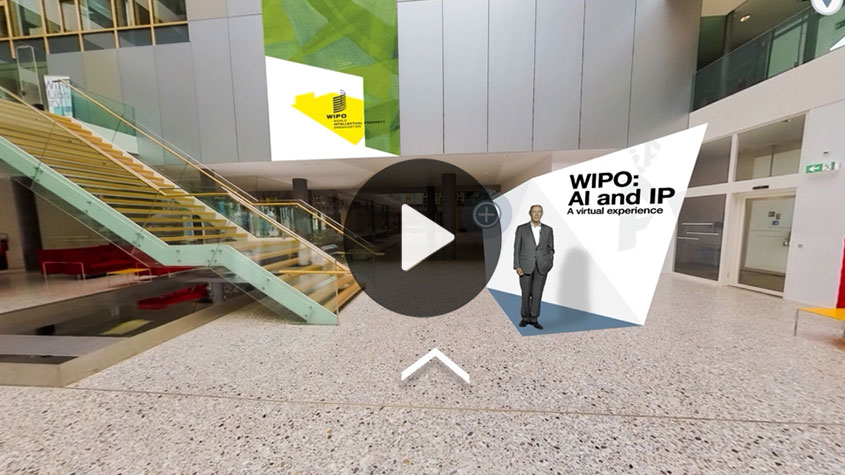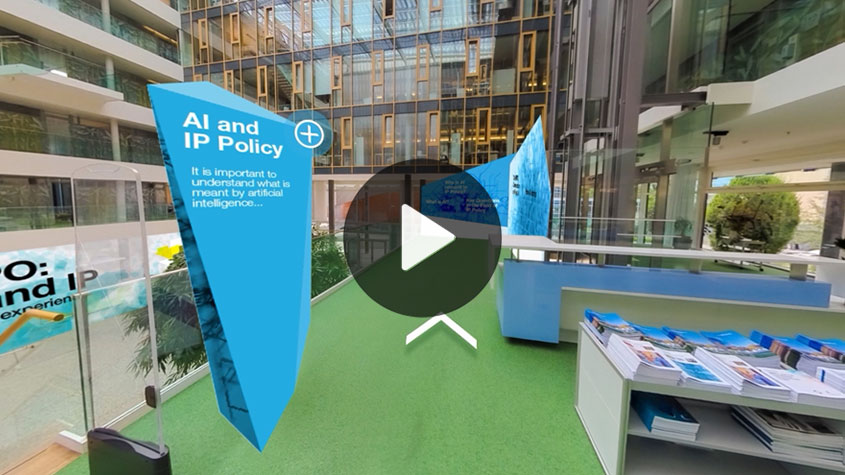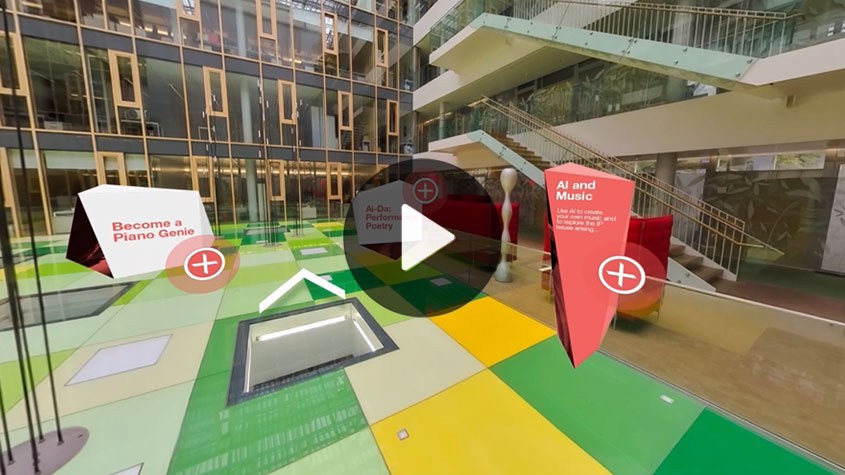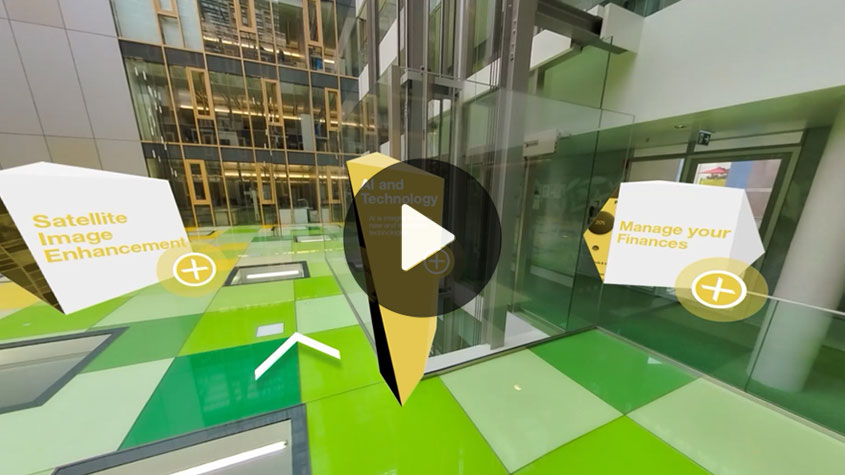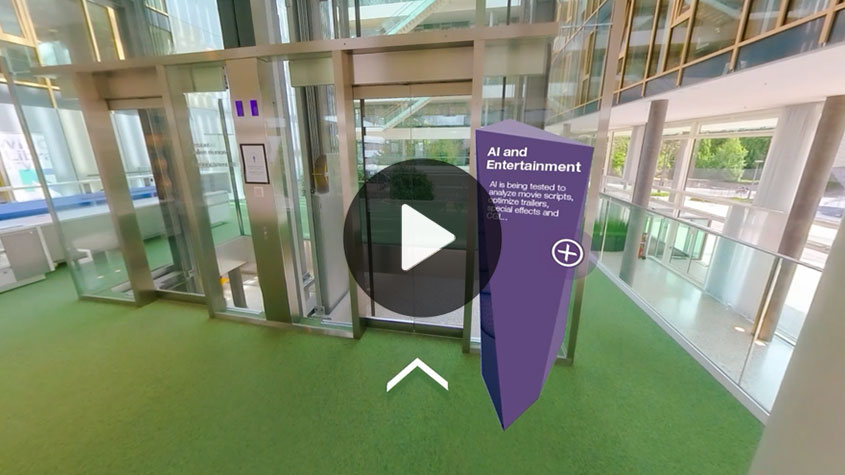Artificial Intelligence and Intellectual Property
Artificial intelligence (Al) is increasingly driving important developments in technology and business. It is being employed across a wide range of industries with impact on almost every aspect of the creation. The availability of large amounts of training data and advances in affordable high computing power are fueling Al's growth. Al intersects with intellectual property (IP) in a number of ways.
Eleventh session of the WIPO Conversation on AI and IP: Infrastructure for Rights Holders and Innovation
Copyright infrastructure, the generally unseen set of organizational systems, processes and technical means that support the implementation of copyright law, is essential to ensure fair protection for creators and copyright owners while allowing for technological innovation to flourish. The rise of generative AI is accelerating the need for a strong copyright infrastructure to ensure that creators are fairly protected while allowing innovation to flourish. As copyright-protected works are increasingly used to train AI models and as AI-generated content becomes more common, the challenges around rights management, attribution, and compensation are growing.
This session explored how different creative industries have developed tailored infrastructure to manage, license, and enforce their rights in the digital environment, and how the development and deployment of AI tools is presenting challenges and opportunities for existing infrastructure. It examined how emerging regulations like opt-out mechanisms and transparency requirements are shaping the landscape and highlighted the importance of building scalable systems that can work across jurisdictions, including for developing countries, and across different creative industries.
The Eleventh session of the WIPO Conversation addressed the role of infrastructure in enabling transparency, consent, and compensation—ensuring the IP system can keep pace with technological change.
Video on demand | Meeting documents
Tenth session of the WIPO Conversation on "Generative AI-IP and Outputs"
The tenth session of the WIPO Conversation “Generative AI: IP and Output” offered a platform for stakeholders to explore these critical issues.
AI is rapidly transforming the creative and innovative industries, driving economic progress while sparking debates about its impact on human creativity. As AI tools become increasingly adept at generating content, the key question is whether AI poses a threat to human creators or serves as a valuable collaborator. The IP field, is grappling with the "output problem"—whether AI-generated content should be eligible for copyright protection. Furthermore, the rise in AI-generated deepfakes has also resulted in broader IP questions around voice and image rights while some experts have even advocated for a new kind of IP right!
Video on demand | Meeting documents
Ninth session of the WIPO Conversation on "Training the Machines – Bytes, Rights and the Copyright Conundrum"
Artificial Intelligence (AI) is accelerating technological progress, revolutionizing industries, and reshaping the way we interact with each other and the information around us. Advances in AI models, especially large language models, and GenAI, are revolutionizing many areas of our lives and proving to be a powerful tool for how we innovate and create.
Training data is central to the success of all current AI systems. The quality of data directly influences the performance and reliability of AI systems across various applications, and access to diverse training data is also one of the important safeguards against AI bias.
A great proportion of the training data currently used by large language models is collected from publicly available sources, for example, by scaping the Internet. The data sets often contain works such as text, images, designs, and music, which are copyright protected.
The ninth session of the WIPO Conversation provided a platform for deep exploration, aiming to understand the multifaceted relationship between training data and IP. By evaluating current practices, proposing practical solutions, and envisioning future directions, this session fostered a holistic understanding of the impact of training data on the IP landscape.
Video on demand| Meeting documents
Eighth session of the WIPO Conversation on GenAI and IP
With the ability to create novel and realistic content such as images, music, and even text, GenAI has the potential to revolutionize multiple industries, including creation of music, images, and other forms of content. GenAI impacts innovation and creation and thus raises diverse IP questions, such as how IP can protect AI models, the interrelationship between data input and the questions around IP protection for AI output.
The Eighth Session of the WIPO Conversation sought to bring together all stakeholders to discuss these important issues, to help establish best practices for the protection of creative works in the digital age, and to provide a map for navigating the challenges brought to the copyright system by GenAI.
Sixth Session of the WIPO Conversation “Frontier technologies – AI Inventions”
AI inventions present the current patent system with a number of challenges. In order to provide better protection and embrace the full value of patents it is necessary to have timely, transparent and accessible standards for patent granting that market players can fully rely on. To harness the economic potential of AI it is important to understand the uncertainties faced by innovators and for IP Offices to consider how to best support AI innovation.
What are the market trends and how do these translate in terms of patent applications? How autonomous is AI actually, what role does it play either as part of the inventive process or as part of an invention? What questions does this raise for the IP system? And how are IP Offices supporting AI inventors?
The Sixth Session of the WIPO Conversation took place on September 21-22, 2022 and connected the views and stories from innovators and IP professionals to what is happening in the IP Offices around the world and aimed at sharing information and building awareness around patent examination practices, tools and guidelines for AI inventions.
Video on demand | Meeting documents | Summary of the meeting | AI Inventions Factsheet
First three sessions of the WIPO Conversation
The first three sessions of the WIPO Conversation looked on the broad conceptual questions raised by AI for the IP system, with a view to collectively formulating the questions that policymakers need to ask.
AI and IP Clearing House
AI is becoming a strategic capability for many governments across the globe. Strategies for the development of AI capacity and AI regulatory measures are being adopted with increasing frequency.
WIPO continuously collates and publishes the main government instruments of relevance to AI and IP with the aid of the Member States. Member States are invited to inform WIPO about any updates in their policies.
Open discussion and dialogue with Member States on IP and Frontier Technologies and AI
What’s next? WIPO General Assemblies’ side event!
WIPO, AI and IP: A Virtual Experience (archived)
The online exhibition, "WIPO: AI and IP, A Virtual Experience" held from September 2020 to March 2021 sought to foster a wider understanding of the relationship between IP Policy and AI and focused on examples of the use of AI in art, music, technology and entertainment.
Watch the archived version of the Exhibition
